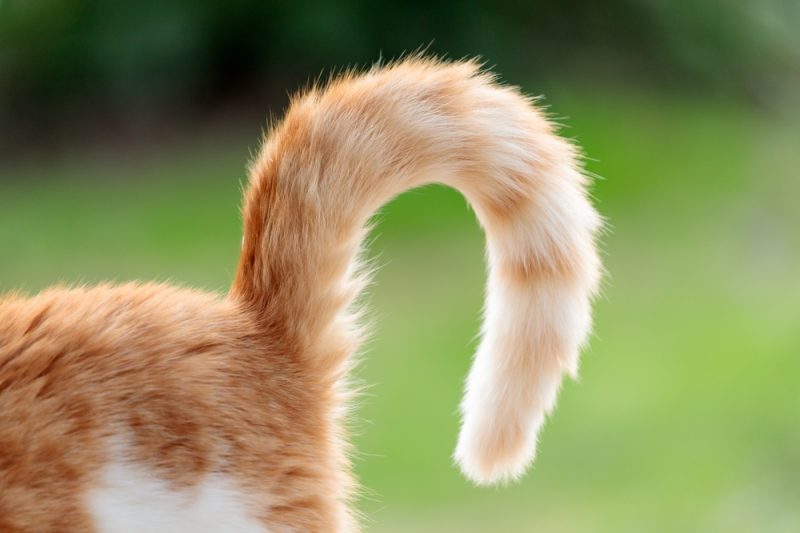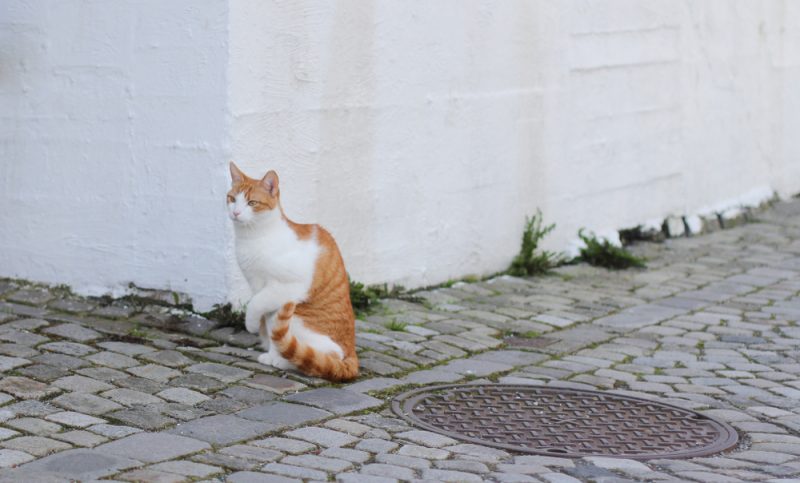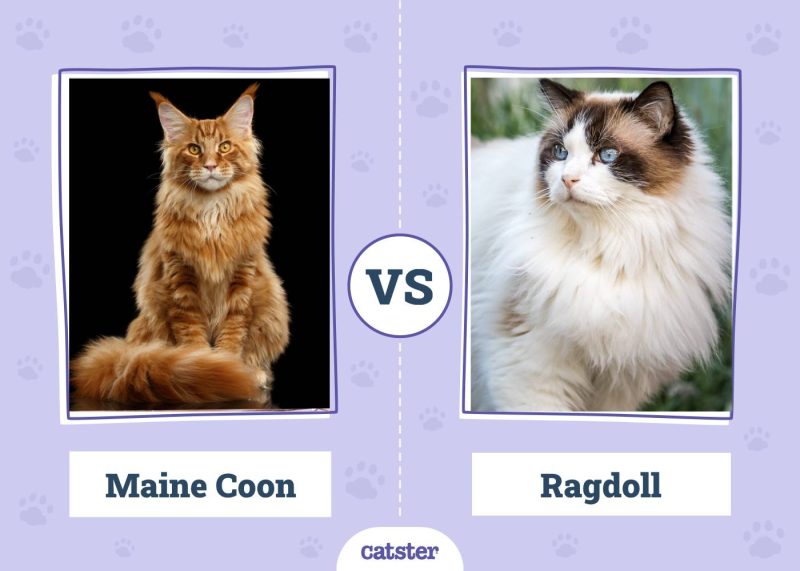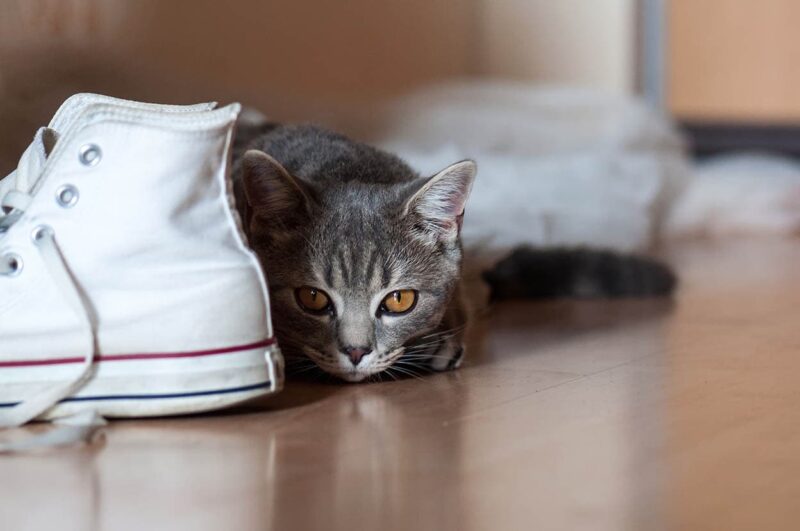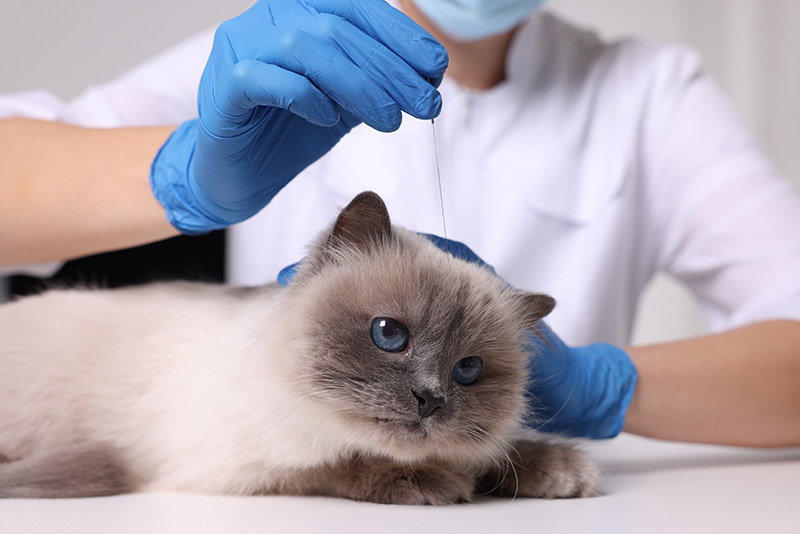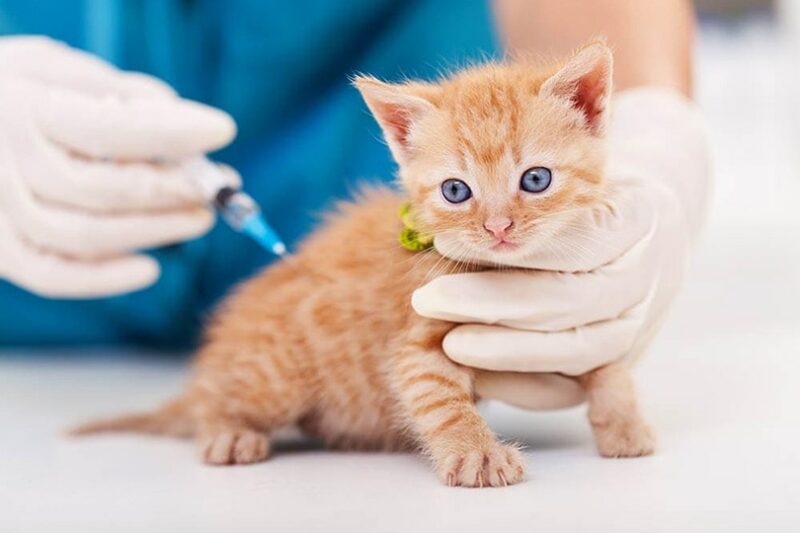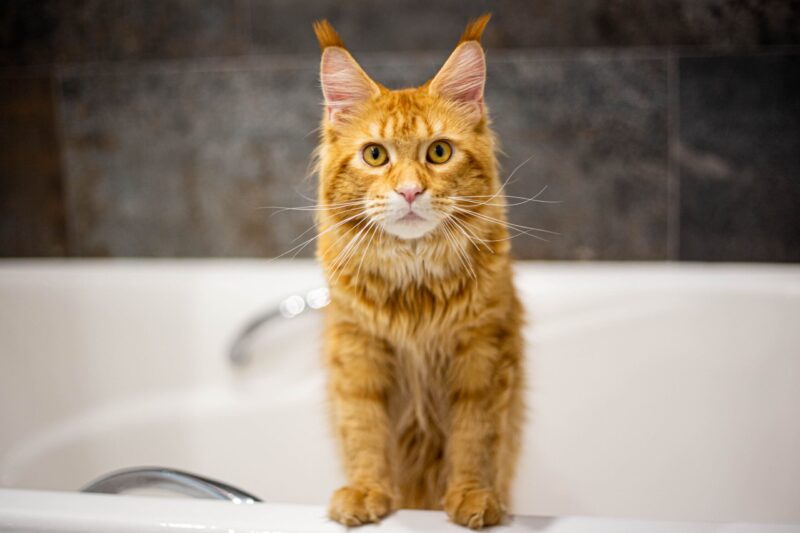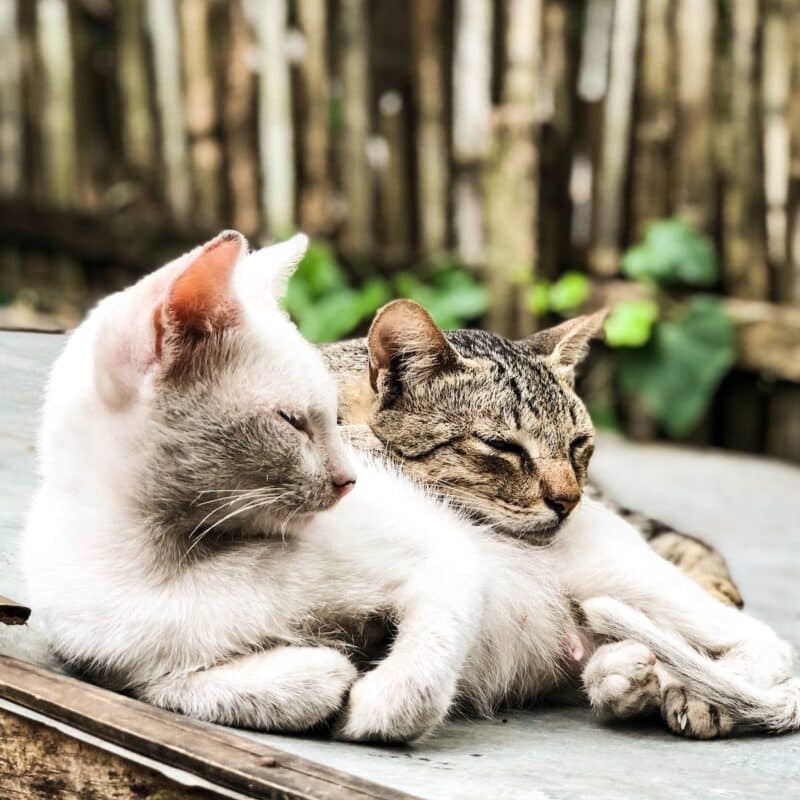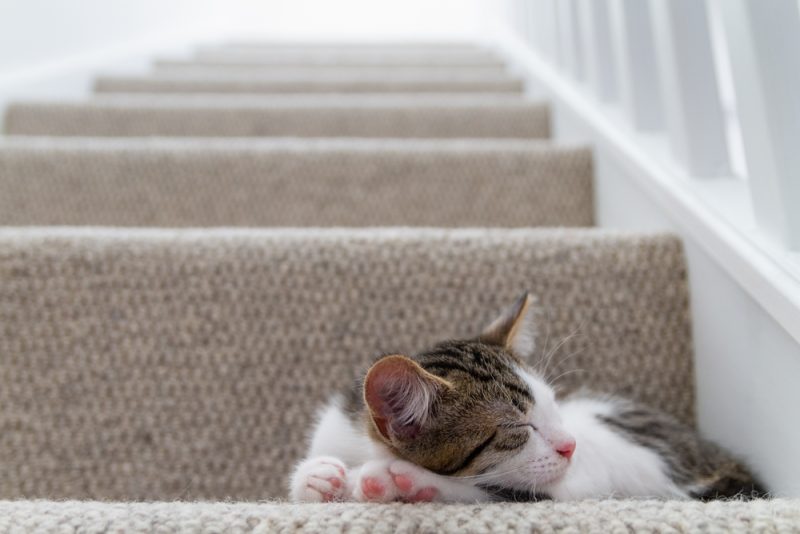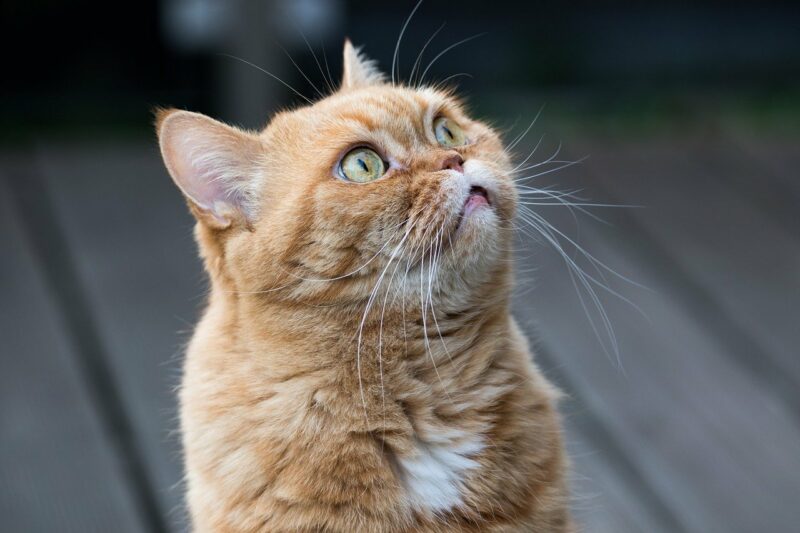It’s normal to see a dog chasing their tail, but do cats chase their tails as well? While many kittens and adult cats chase their tails for entertainment (both for themselves and for you), sometimes this behavior can be indicative of an underlying health condition.
If your cat is chasing their tail suddenly, you might wonder why they’re doing so when they have never done it before. Keep reading to find all the potential reasons your kitty might be chasing their tail.

The 8 Reasons Your Cat Is Chasing Their Tail
1. For Entertainment
Your cat might be chasing their tail simply because tail chasing is fun. While this behavior is more common in dogs when they’re playing, many cats will chase their tail when they’re in a silly mood.
Cats love to chase moving items, even if it means it’s their own tail. Your kitty is a natural hunter, so they might be running in circles “on the hunt” for their tail. If your cat is exhibiting this behavior when in a playful mood, there is likely no need for concern.
Looking for toys that will cater to the many needs of your cat? The Hepper Hi-lo Cat Scratcher is one of our favorite cat products, and it will encourage your cat to get active. Its clever three-angle design offers multiple ways for your cat to climb, stretch, and exercise. Made of a sturdy plywood base and a replacement cardboard insert, this scratcher is an option that cats can enjoy for years to come. If your cat requires a little encouragement for self-play, the Hepper Catnip Mice Toy Set is a fantastic choice for their instinctual needs. Made with natural, bite-resistant hessian fabric and filled with organic catnip. Cats can satisfy their natural prey instincts while getting the physical activity they need to thrive.
| Image | Product | Details | |
|---|---|---|---|
Great for Exercise

|
Hepper Hi-Lo Cat Scratcher |
|
Check Price |
Encourages Self-Play
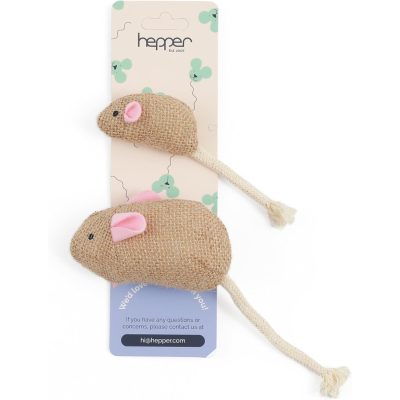
|
Hepper Catnip Mice Toy Set |
|
Check Price |
At Catster, we've admired Hepper for many years, and decided to take a controlling ownership interest so that we could benefit from the outstanding designs of this cool cat company!
2. To Beat Boredom or Cure Stress
If your cat suddenly starts attacking their own tail, they could be bored or stressed. If this behavior is new, you might want to look at your pet’s environment, as they may lack stimulation.
Is there enough enrichment in their environment for them to stay happy and busy? For example, do you have plenty of toys and spend time playing with your cat daily? If not, you might want to consider splurging on some new toys, a cat tree, or wall-mounted climbing shelves to spice things up.
3. To Relieve Pain
When a cat is in pain, they sometimes focus their attention on the area that’s hurting by licking, biting, or scratching. As a result, you may believe your cat is chasing or attacking their tail when they could actually be biting or licking at a lesion on the tail.
Many health issues could cause licking in the area of the tail and hind end in general, such as impacted anal glands, skin allergies, a tail wound, or even worms in the stool.
Pay extra close attention to see if your cat is biting their tail, as it can cause wounds that can lead to painful infections. Tail infections can be challenging to treat, so if there are any wounds near the area, you’ll need to see a veterinarian as soon as possible.
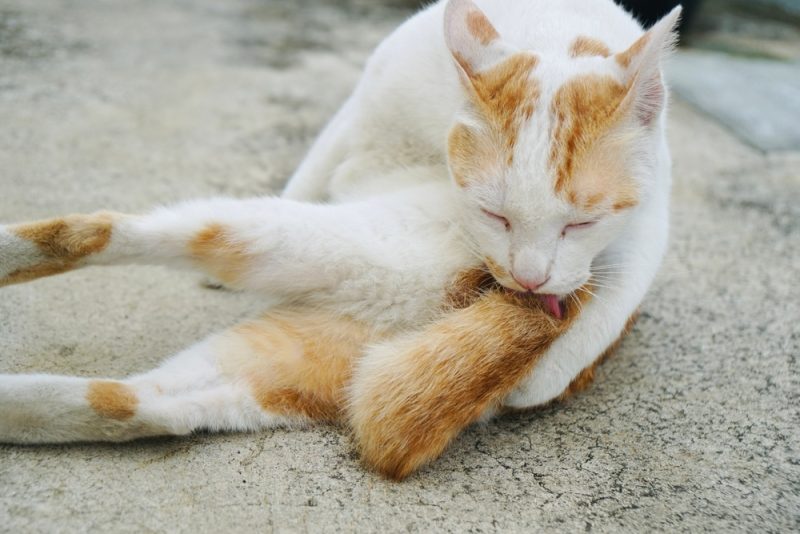
4. Fleas
Flea bites can cause extreme itchiness. Adult fleas like to bite at the base of a cat’s tail, so what you may be interpreting as your cat trying to catch their tail may very well be your cat trying to relieve themself of the itch from fleas.
Fleas will produce other signs aside from itchiness. If you see some of the following signs in your cat, a visit to your vet is in order:
- Bumps on the skin
- Excessive grooming
- Excessive scratching
- Spots of hair loss
- Skin irritation
- Lethargy
- Black specks in the fur
If you need to speak with a vet but can't get to one, head over to PangoVet. It's an online service where you can talk to a vet online and get the advice you need for your pet — all at an affordable price!
5. Allergies
Environmental or food-related allergies can leave your cat’s skin itchy and dry. An itchy cat will try anything to relieve themself of the discomfort, and that includes behavior that you may interpret as tail chasing. For example, they may spin in circles to find a comfortable position to ease the itch.
As with fleas, allergies typically don’t only present in one way. You are likely to notice your cat displaying other signs of an allergy, which can include:
- Rashes in other areas
- Itchiness in other areas
- Vomiting
- Diarrhea
- Swollen paws
- Snoring
- Sneezing
- Wheezing
Allergies can be treated by avoiding the allergen if you can determine what that is. Your vet may also suggest using antihistamines or, in more severe cases, steroids.
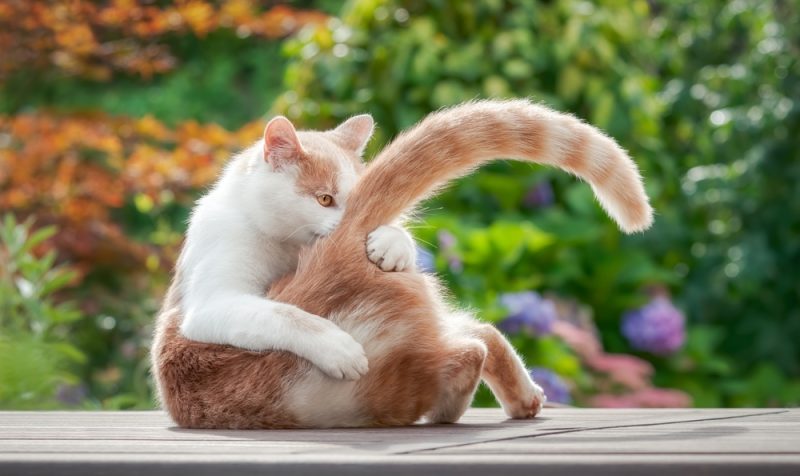
6. Stud Tail
Stud tail is a relatively rare skin condition that can occur on the base of a cat’s tail. It is similar to human acne and results from excess oil production. It is most often seen in young and unneutered males as they begin to go through puberty. Stud tail is believed to be caused by raised hormone levels.
Cats with stud tails may appear to have blackheads in between the hairs on their tails. The hair in the area can also become greasy, and the entire area can become raw and sore. Other signs to be on the lookout for include:
- Pus on or near the tail
- Red bumps near the tail
- Yellowing tail fur
- Loss of fur near the tail
If you believe your cat has a stud tail, veterinary intervention is necessary to address it.
7. Feline Hyperesthesia Syndrome
Feline hyperesthesia syndrome (FHS) is a neurological condition that results in extreme skin sensitivity. It occurs most often on the back and in front of the tail. Cats with FHS have hyperactive nerve endings that cause an irritating tingly feeling. When the nerve endings become aggravated, the cat may begin to panic and chase its tail wildly.
Some vets believe that FHS is an obsessive-compulsive disorder, while others feel it could represent a seizure disorder. Siamese cats seem to have a genetic predisposition to the condition.
8. Infection
Stud tail typically only affects young and unneutered males, but cats of any gender or age can contract many other types of infections that affect the tail area.
Anal glands can become impacted and infected and can even develop abscesses. This can cause your cat to scoot their bum across the floor and the area to become visually swollen. In addition, your pet may be paying more attention to their tail than usual and may exhibit behaviors you misinterpret as tail chasing. You will need to get your pet examined by a vet to determine the root cause of this behavior.
Secondary infections can occur after tail injuries. If your cat has injured their tail, keep a close eye on them to ensure the tail is healing as it should be.
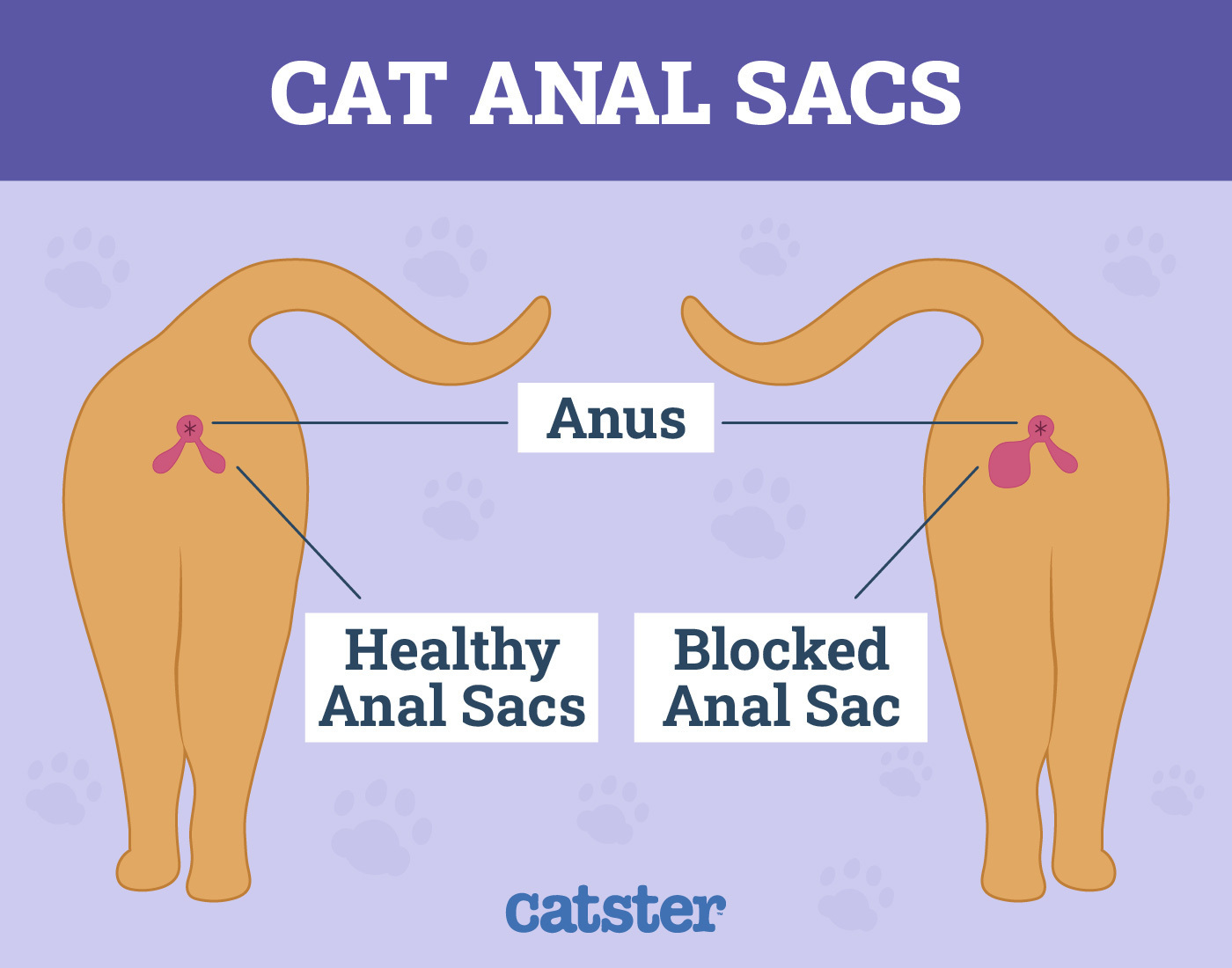
Final Thoughts
While cats chasing their tails can be a completely innocuous behavior that your kitty exhibits when feeling hyper and playful, it can also indicate a health condition. If your cat is chasing their tail during playtime, chances are they’re playing. But if other signs accompany the tail chasing, you might wish to have your kitty examined by a vet to rule out any health conditions.
Featured Image Credit: olivier.laurent.photo, Shutterstock
